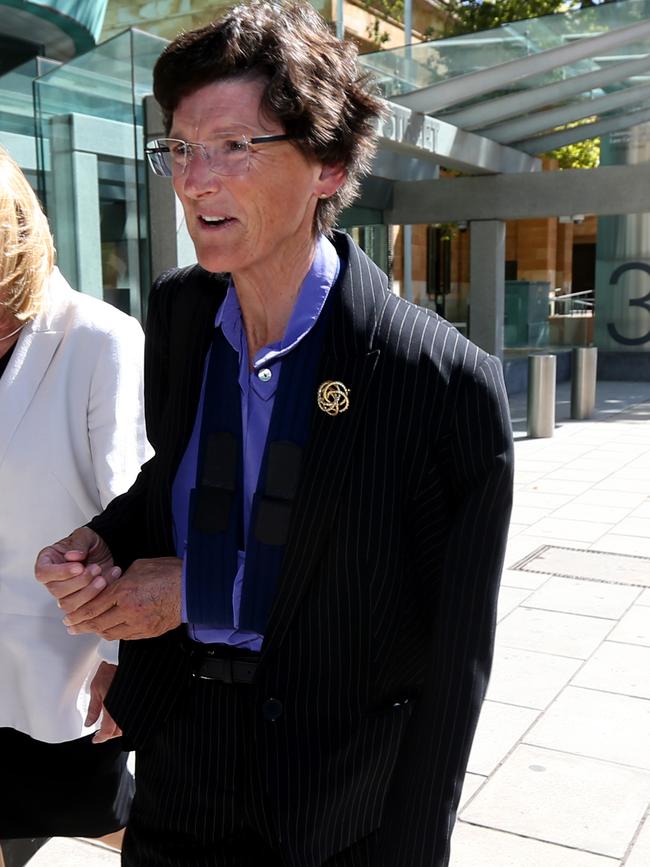Aged-care assessors ‘aggressive, there to ‘catch out’ providers, royal commission told
The national director of a major aged-care provider with two sanctioned SA facilities says the regulatory system is “aggressive” and there to “catch out” providers — and that some people would rather die than enter aged care.
SA News
Don't miss out on the headlines from SA News. Followed categories will be added to My News.
The national director of a major aged-care provider with two non-compliant South Australian facilities says the current regulatory system is “aggressive” and there to “catch out” providers.
UnitingCare director Claerwen Little told the Royal Commission into Aged Care Quality and Safety that assessors conducting unannounced visits were “aggressive”, “becoming more punitive” and “often incredibly negative”.
“They say quite openly that they’re there to find something wrong, that they’re there to find them — to catch them out,” she said.

“So what we’re really seeing is a real shift in the dynamic between our providers who are doing their absolute very best on the ground and those people who are coming in, some of whom know nothing about the system that they are assessing, and it has become … something that we’re really concerned about.”
UnitingCare’s Hawksbury Gardens facility at Salisbury Gardens was sanctioned by the Aged Care Quality and Safety Commission in December for failing to meet a standard around behavioural management, leading to its Commonwealth subsidies for new patients being suspended for four months.
Its Westminster Village nursing home at Grange was last month also found to be non-compliant by the Aged Care Quality and Safety Commission after failing to meet four standards.
The nursing home was previously found to be non-compliant in 2017, and has twice been sanctioned by the regulator, in 2000 and 2017.
Speaking outside the commission, Ms Little told The Advertiser she was not familiar with Westminster Village’s compliance failures but said the service would “always do better” when sanctioned, found to be non-compliant or seen to not be doing well.
“We’re sorry for anything that has ever happened to people and we will make sure we always do our best to make sure those things don’t happen again,” she said.
Ms Little said her comments about the “aggressive” regulatory environment were not motivated by its facilities failing to meet standards, but was instead “more about the general sense of what we’re experiencing in our homes and services”.
“We will always work with the regulator and absolutely work with assessors when they come to our services, so it’s really about wanting a service where we can work together in ensuring our services are the best they can be,” she said.
Ms Little also told the royal commission that she didn’t believe the aged-care system was working in the best interests of older Australians and said consumer feedback indicated some people would rather “poke their eye with a pencil” than enter a residential aged-care facility.
"Sadly, some people would rather die than go into an aged-care facility,” she said.
Later on Wednesday, Uniting Voice executive projects co-ordinator Melissa Coad called for minimum staffing levels in the sector to ensure workers could “spend appropriate time” specifically with residents.
“Our members tell us that a lack of staffing leads to quite high workloads for them and leads to them being rushed through things,” she said.
The union did not have a specific model in mind of what that minimum level should be, but it must look beyond residents’ physical needs, Ms Coad said.
“Members feel particularly upset that they don’t get to do things at a pace that is dignified and appropriate for the individual person,” she said.
“So certainly we would say that some sort of mandated staffing level should address those workload issues.”
Ms Coad called for aged-care workers to be formally registered and receive better training.


